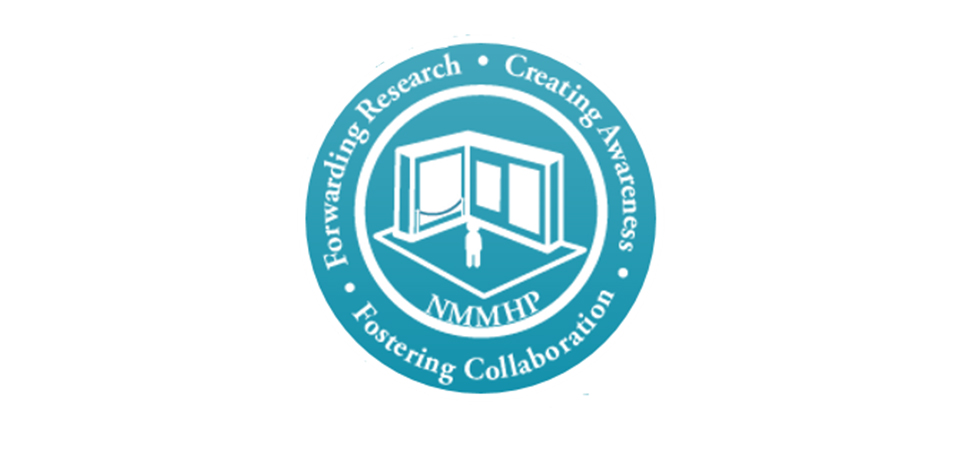Virtual Museum Aims to Change Perceptions and Raises Awareness of Mental Health Issues

During the COVID-19 pandemic, concerns regarding mental health and raising awareness of such increased exponentially throughout the United States. To address these exacerbating concerns, Professor Paul Piwko, MBA, and Alexandra Orlandi ’19 incorporated the National Museum of Mental Health Project (NMMHP), a “museum without walls” that showcases exhibitions aimed to form new perspectives and understanding about mental health issues.
NMMHP’s mission has expanded to include conveying mental health information through innovative virtual exhibits. According to its website, NMMHP is dedicated to developing and displaying exhibits that are a collaboration among artists, curators, mental health professionals, individuals who have experienced mental health challenges, and others committed to changing perspectives on this wide-ranging field that affects 10 million Americans each year, according to the National Alliance on Mental Illness. The exhibits not only raise awareness and educate individuals on pressing mental health matters, but also seek to share research into this field and promote wellness.
“The National Museum of Mental Health Project, Inc., is a nonprofit organization and ‘museum without walls’ that researches, shares, and creates exhibitions that can transform society’s attitudes about, and understanding of, mental health,” said Prof. Piwko. “Through the development of online exhibits, NMMHP fulfills the purpose of a museum: educate, interpret, advance dialogue, and develop literacy on a topic of societal importance.”
Prof. Piwko, who teaches accounting in the Grenon School of Business, and Orlandi, a mental health specialist at McLean Hospital in Belmont, initially launched the NMMHP in 2019 after completing a research fellowship at Assumption about mental health exhibitions. The NMMHP was created to share information and research regarding exhibitions about mental health in the U.S. And while their initial mission was to showcase the exhibits developed by others, mainly through op-eds about the benefits of mental health exhibitions, the NMMHP now has an expanded mission that also includes the development of its own virtual exhibitions.
“Learning about mental illness and wellness isn’t just about reading textbooks, listening to lectures, or seeing a therapist. Learning is also observing and exploring,” said Orlandi, explaining that NMMHP exhibitions will promote mental health literacy by sharing personal narratives and expanding vocabulary. “These exhibits will provide a unique space for visitors to experientially interact with content.
Orlandi added that NMMHP is working on virtual exhibitions as a concrete step toward a physical national museum. And while the ultimate goal is to create a series of rotating and traveling exhibitions in publicly accessed spaces, due to the COVID-19 pandemic, she and Prof. Piwko are focused on the development of virtual exhibitions, similar to that of GirlMuseum.org, an online museums dedicated to celebrating girlhood.
“What Ashley Remer has done with Girl Museum is what we seek to replicate,” said Prof. Piwko. “From her living room in New Zealand, financed by a few thousand dollars annually, she created one of the world’s first virtual museums.”
Prior to the pandemic, mental health exhibitions had been increasingly appearing in museums, airports, and malls. According to Prof. Piwko, NMMHP now seeks to expand and shift this trend from brick-and-mortar establishments to the internet. “The COVID-19 pandemic has created an unprecedented need for mental health resources,” he said. “Virtual museums side-step the cost of physical buildings and dramatically increase visitor accessibility.”
NMMHP is currently developing its first exhibition, I Get It, which will launch in early 2021 on its website, which was designed by Kate Kruzick ’20. According to the website, the inaugural exhibition will serve as a “safe space for creative exploration, shared understanding, inspiration, and emotional learning” and will rely on a social media-based oral history collection of personal messages and artistic works that tell the story of journeys toward better mental health.
NMMHP has a comprehensive list of U.S. mental health exhibits on its website along with a brief summary about each one, such as The Yellow Tulip Project’s I Am More exhibit, which has multiple locations in the U.S., including in Boston’s Logan Airport (Prof. Piwko and Orlandi spoke at the opening), that aim to eliminate the stigma around mental health.
Prof. Piwko and Orlandi have been published by numerous news outlets, including the Des Moines Register, the Omaha World-Herald, The Coloradoan, and the Worcester Telegram & Gazette. They presented their work to the New England Museum Association in 2018 and will present at the 2021 Mental Health America Annual Conference.
